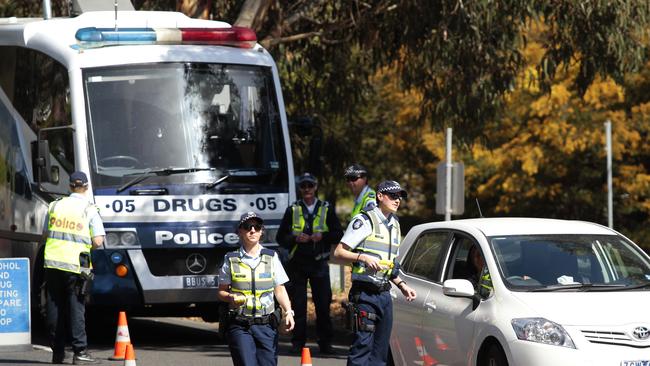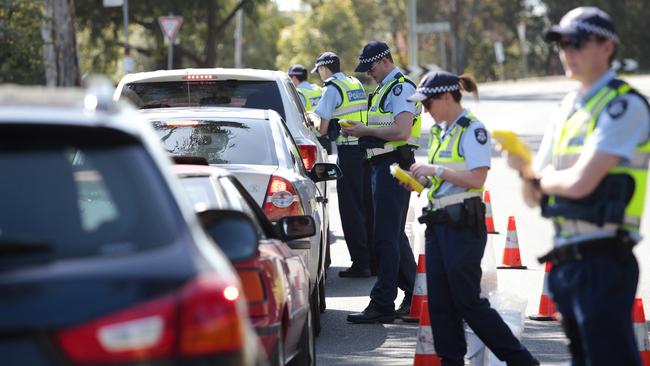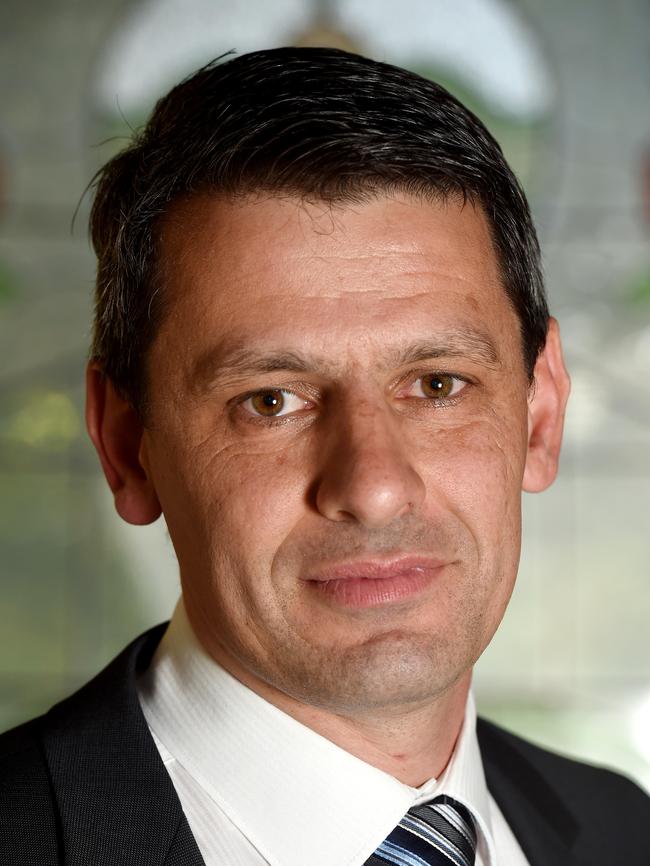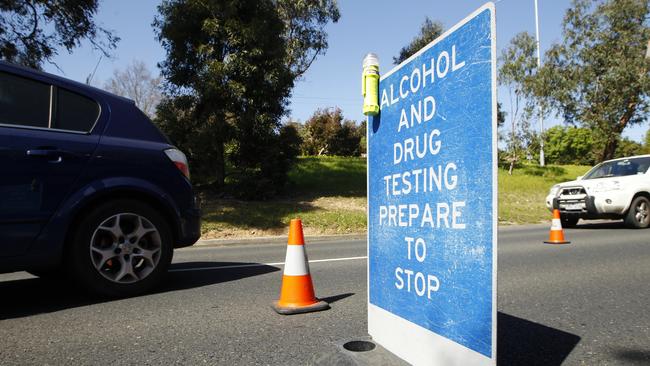Police Union in Victoria push for hi-tech arsenal
EVERY police car would be equipped with road spikes and cutting-edge technology to reclaim respect on Victorian roads amid claims of a dramatic drop in the force’s highway visibility.

VIC News
Don't miss out on the headlines from VIC News. Followed categories will be added to My News.
EVERY police car would be equipped with road spikes and cutting-edge technology to reclaim respect on Victorian roads amid claims of a dramatic drop in the force’s highway visibility.
The Sunday Herald Sun can reveal the powerful police union will also lobby for 500 more officers to combat a 33 per cent drop in the number of road policing shifts.
All police vehicles will also be capable of drug testing.
The demands are the first salvo in a political battle over law and order that could shape next November’s state election.
Police association secretary Wayne Gatt told the Sunday Herald Sun: “Community safety is a key issue in this election. Our members are the custodians of community safety and this will help them to better protect you.”
Stop sticks — tyre-deflating devices thrown in the path of vehicles during chases — would be in every police patrol vehicle.
The union also wants new technologies adopted, such as the StarChase GPS tag system, which fires a tracker onto fleeing vehicles.

New laws would indemnify police who take “reasonable action” to end a pursuit and chases co-ordinated by a central controller.
An extra 400 highway patrol police and 100 specialist road policing officers would be progressively hired over five years.
The union claims a policy, which it supports, of members working in pairs for safety has coincided with a 33 per cent drop in highway patrol shifts and a 25 per cent drop in traffic infringements.
“We’ve seen in Melbourne and around the world how vehicles can be used as a weapon of mass casualty,’’ Mr Gatt said.
“Our police need to be given the tools and the capabilities to stop it from happening again. Bollards have been installed all around our city for the sole purpose of preventing vehicular attacks.
“What we’re saying to all political parties is let’s think a step ahead of that, and give our police every possible resource to stop these crazed drivers before they make it to the bollards.
“This is not specific to acts of terrorism — it relates more commonly to pursuits.”
Every police vehicle would have capacity to conduct preliminary drug tests and police able to issue fines without the need for secondary tests.
Drugs three years ago overtook alcohol as the leading factor in road deaths — accounting for a record 58 driver and motorcycle rider deaths last year.
“Our road safety strategy in Victoria is to achieve zero road deaths on Victorian roads,” Mr Gatt said.
“We need to give our members in road policing every possible chance to save lives, providing each patrol car with the ability to conduct a preliminary drug test will help catch at-risk drivers and help drive a cultural change by enforcement, as it has done with drink driving,” he said.

New anti-terror measures would include clearer guidelines on use of lethal force, extra explosive detection dogs and a presumption against parole for people associated with terror.
Victoria Police Assistant Commissioner Doug Fryer said some of the union’s previous recommendations on pursuits had been implemented.
“This issue of the type and volume of stop sticks is currently being explored by Victoria Police, and we’re working closely with the police association on these issues,’’ he said. “Other topics regarding pursuits are still on the table and being discussed.”
Mr Fryer said a staff allocation model — which accounts for the safety ban on officers working alone — had been developed so extra police were deployed where they were most needed, including within highway patrol.
Victoria led the nation in testing of drug drivers.

“We know the more tests we do the more general deterrence we provide,’’ Mr Fryer said.
“Victoria Police are keen to expand our drug driving testing regime and are working with government and the road safety partners to establish the best way to progress.”
Police Minister Lisa Neville has met police union representatives and been briefed on their proposal.
New technology to stop vehicles was already being trialled, and extra staff funded to hasten analysis of drug tests.
“We remain focused on giving Victoria Police the powers and the resources they need,’’ Ms Neville said.
“We’re investing in new technology and delivering 3135 new police that will ensure we have enough frontline police in both road policing and staffing police stations across the state.”
Opposition police spokesman Edward O’Donohue said: “Following the weakening of the justice system by the soft on crime Andrews Labor Government, the hard working men and women of Victoria Police have been under attack like never before.” “It’s critical that Victoria Police has the best tools, equipment and laws to tackle the crime tsunami that has engulfed Victoria.”
WHAT THE UNION WANTS
ROAD POLICING
Extra 500 highway patrol officers over five years
Centralised service model with dedicated inspector in each division to oversee local traffic operations
DRUG TESTING
Every police car given capacity to conduct preliminary oral fluid drug tests
Officers able to issue fines and commence proceedings without need for secondary testing
Power to remove drug drivers
PURSUITS
Tyre deflation devices and suitable emerging technologies such as GPS trackers in every patrol car
Extra training for highway and road policing members in pursuit resolution
Central co-ordination of chases
Collection of data of fleeing behaviour of offenders
Laws to indemnify officers who take reasonable action to end pursuits
TERRORISM
Clearer laws about the use of lethal force to neutralise terror threats
Presumption against parole for terror offences and people associated with terror groups
Immediate protection from identifying police responding to or investigating terror offences
Extra explosive detection dog teams
Increased capacity for Critical Incident Response Team


